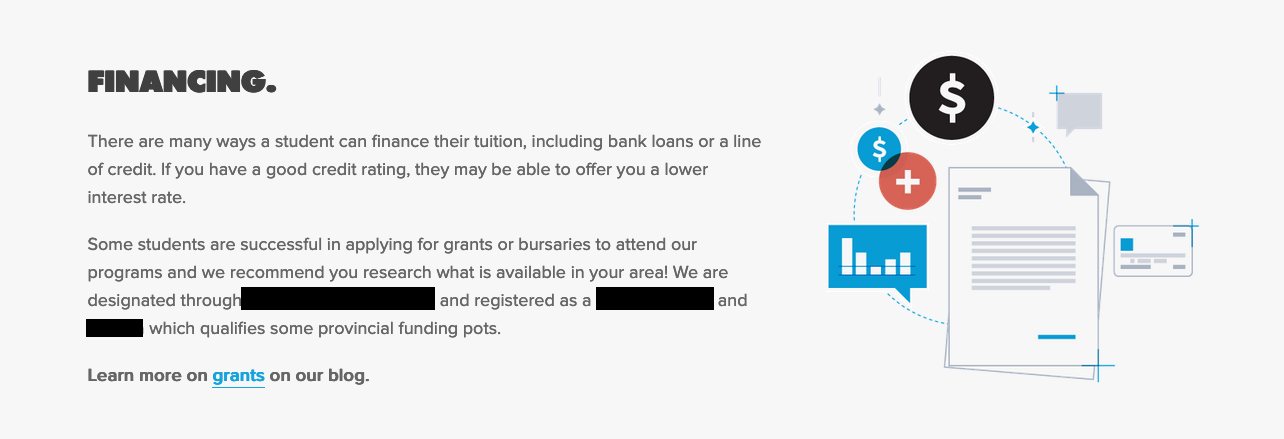You Don't Need A Coding Bootcamp
I will preface this post by saying that it’s not about quantifying the education of those that already went through coding bootcamps, but is rather a point of view (i.e. opinion) for those that are considering whether they need to sign up and pay for bootcamps that will teach them how to write software. I am sure there are quite a few people who found success going down the bootcamp path, and I am extremely happy for those that found it to be their preferred approach. I, myself, have not gone through a bootcamp, so take everything I write below with a boulder of salt.
You don’t need bootcamps to learn how to code. They are expensive, and the information you will get there can mostly be found online. The reality is that in twelve weeks you will not get the depth and experience needed to become fully proficient in a language, framework or both - a lot of the individual success will still depend on one’s ability to do the research themselves and just being able to be heads-down in writing code. The best way to learn to code is to write a lot of code. As often as you can. And you don’t need a bootcamp for that.
The costs are ridiculous, to say the least, for what is being offered. The screenshot with the cost below is referencing a coding “school” that was fined by the State of California for running an unapproved educational institution.

Bootcamps over-promise and often under-deliver. Reading one piece of feedback from a graduate, there is a seriously misplaced understanding of the outcomes:
At Hack Reactor, we’re trained to mask our inexperience. In our personal narratives, we purposely omit our bootcamp education. Why? Otherwise, companies automatically categorize us into junior developer roles or tag us as “not enough experience.”
What’s worse, there is a large number of people that go in debt in the hopes of better possibilities, that will never come without significant investment of your own effort after the bootcamp. That’s not hidden either, but is even encouraged:

The job placement numbers plastered all over the coding bootcamp sites are largely unaudited, so that 99% placement rate might as well be 1%.
After twelve weeks at a bootcamp, you will not be qualified to be a senior/experienced developer. That is just not realistic at any company, in or out of Bay Area. Hiding the bootcamp education in this context is not going to hide the fact that a good screening process is likely to detect whether the candidate has the required qualifications and understanding of algorithms, data structures, performance trade-offs and many other aspects that would be unrealistic to cover in three months without losing sleep. But I digress - this blog post is not about titles or career progression, but rather about the merits of the bootcamp education.
For n+1 weeks that you will spend there, you are better off carving out the time yourself, and use the following approaches to study:
- Start with online academies. With resources such as Coursera, Udacity, MIT OpenCourseWare, Microsoft Learn and even YouTube coupled with the ability to use a search engine to look for ways to solve problems (e.g. “How to sort arrays in <language>”) you can get pretty far. Speaking from my own experience (sample of one), I managed to learn C# entirely from online resources and videos without buying a single book. There is no deficit of information out there that can get you up-to-speed at no cost. If you have disposable income, you can even sign up for sites such as Pluralsight, that will likely give you more bang for the buck than a bootcamp that costs multiple thousands of dollars.
- Come up with problems to solve, break them down, and just look at ways to solve them. I personally always recommend learning to code through a problem-focused approach. Set a goal (“I want to build a note-taking app.”), break it down (“I need to build the user interface, way to store notes on disk and read them later.”) and then start looking for ways in which those can be solved (search Bing or Google for “how to store files <language>”), depending on the language of choice. For the purposes of this post, I am not going to recommend any specific programming languages.
- Use online forums. Resources like Stack Overflow and dev.to are absolutely fantastic in unblocking you when you can’t find what you are looking for online.
- Get old-fashioned books. There are plenty, for most languages, and a plethora of community reviews that will allow you to identify whether it’s worth investing some of your hard-earned cash in a publication.
All things considered, save the money and try to study on your own! You might find that it’s a bit more challenging without an instructor, but not $13,000 - $30,000 kind of challenging. I believe in you!